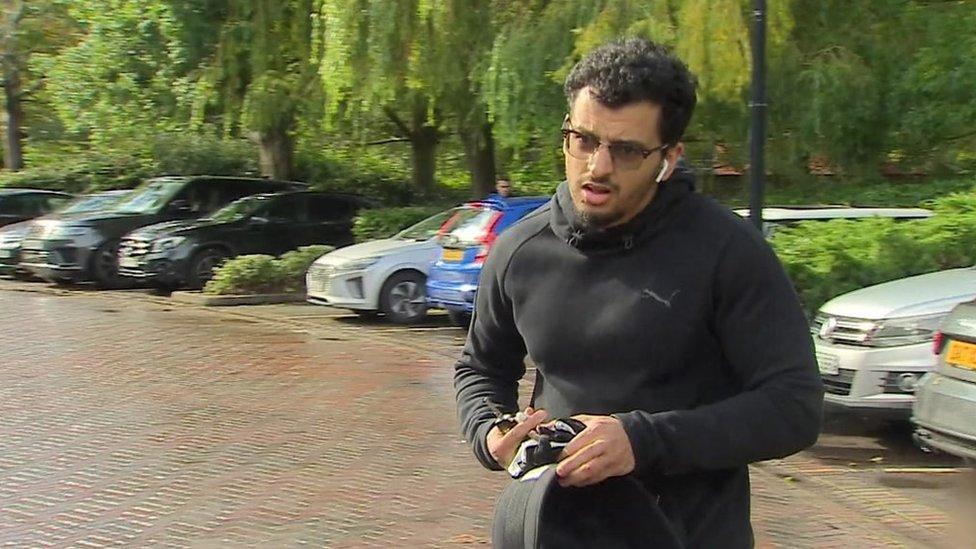Manchester Arena Inquiry: Mosque failed to act on extremism, families say
- Published

The families said the last two days of evidence "must be a wake-up call"
The mosque which the Manchester Arena bomber attended failed to adequately "challenge extremist ideology" in the years before the attack, the families of his victims have said.
A former Didsbury Mosque imam has told the Manchester Arena Inquiry support for terror groups was preached there.
In a statement, some of the bereaved said they were "dismayed" by the mosque's "failure to acknowledge this".
A trustee has previously told the inquiry the mosque was "mainstream".
On Tuesday, the chairman of the mosque's trustees, Fawaz Haffar, said encouraging any radicalisation would be "in contradiction of our charitable objects".
"We are a mainstream mosque welcoming all Muslims, but we are in the middle of the road," he said.
Twenty-two people were killed and hundreds more injured when Abedi detonated his homemade device at Manchester Arena on 22 May 2017.
The inquiry has previously heard how his elder brother Ismail was in possession of a "significant" amount of extremist material supporting the Islamic State group when he was teaching at Didsbury Mosque.
'Wake up call'
In a statement read outside Wednesday's hearing, the families of some of those killed said while there was "no evidence" that the mosque played "a direct role in radicalising Salman Abedi, it is clear that they failed in the years before the bombing to take adequate steps to challenge extremist ideology".
They said they had been "shocked by the complacency displayed" by Mr Haffar and believed the mosque "failed to do all that it could and should have done to combat and prevent radicalisation amongst the community it purports to serve".
They said they believed "most Muslims will also be dismayed by this failure and added that the last two days of evidence "must be a wake-up call".
"We urge all communities around the country to heed the lessons of this week's evidence, to redouble efforts to combat extremism of all kinds, and to be clear and vocal in doing so," they said.
Earlier, the inquiry heard from Mohammed Saeed El-Saeiti, an imam who led prayers at the mosque during the years Salman Abedi and his family attended.
He said his fellow imam Mustafa Graf had led prayers that called for victory for terrorist groups fighting in the Libyan civil war, which began in 2014.
He said Mr Graf was praying "for the terrorist groups in Benghazi, he was praying for their victory, while they were beheading civilians and beheading innocent people".
He also said supporters of the terrorist groups were allowed to meet at the mosque in 2015 and 2016 and that after reporting concerns to the mosque's trustees, he was told some of the "brothers" in the congregation had allowed to use the building as a venue for meetings.
'Hateful look'
The inquiry heard that Mr El-Saeiti received death threats on social media after giving a sermon against Libyan terrorist groups on the day a video was released of the murder of Salford aid worker Alan Henning by the Islamic State group in 2014.
Salman Abedi's father Ramadan was among those who criticised the imam, although he did not issue a death threat.
Mr El-Saeiti said after his sermon, he encountered Salman Abedi, who gave him a "hateful look".
"He showed me that he didn't like me, basically," he said.
The hearing was told some members of the congregation had also organised a petition, calling for Mr El-Saeiti's removal from office after the sermon.
The petition was signed by Salman Abedi's brothers Hashem, who was jailed for life in 2020 for his part in the Manchester bombing, and Ismail.
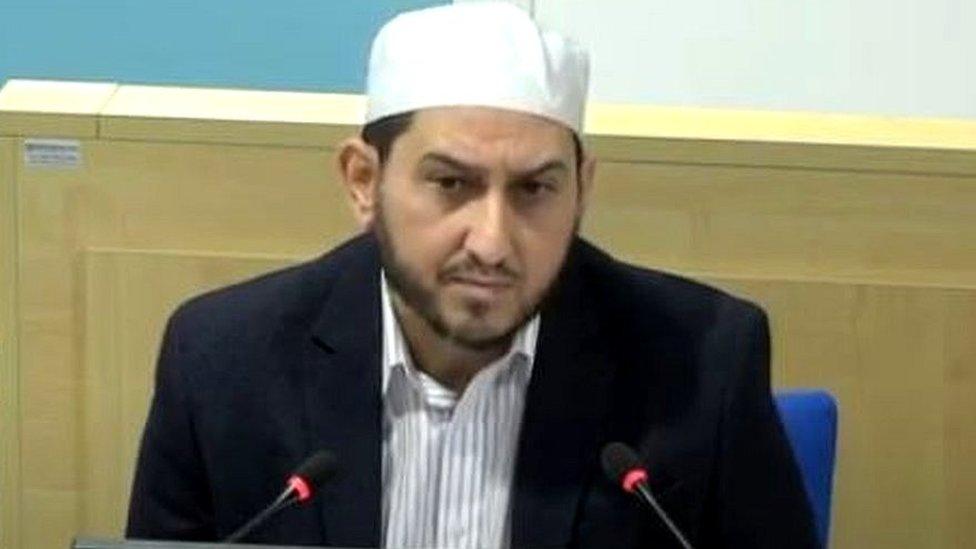
Mohammed Saeed El-Saeiti said a fellow imam had prayed for terrorist groups during sermons at Didsbury Mosque
The imam said he eventually left the mosque in July 2020.
He denied that he "held a grudge" against the mosque and said he was "only telling the truth".
He added that he disagreed with statements given by other members of the mosque to the inquiry.
On Tuesday, Mr Haffar denied the mosque had an issue with radicalisation and said it did not "encourage anyone to get involved with wars abroad", as it would be "in contradiction of our charitable objects".
"We are very clear, even through our imams, that we are a mainstream mosque welcoming all Muslims, but we are in the middle of the road," he said.
He told the hearing the claims by Mr El-Saeiti were false.
However, the families of some of those killed in the bomb praised him in their statement outside court.
"We commend Mohammed El-Saeiti who tried to confront extremism and we find it deeply troubling his efforts were rubbished by the leadership of the mosque both at the time and this week."
The inquiry continues.

Why not follow BBC North West on Facebook, external, Twitter, external and Instagram, external? You can also send story ideas to northwest.newsonline@bbc.co.uk
Related topics
- Published23 November 2021
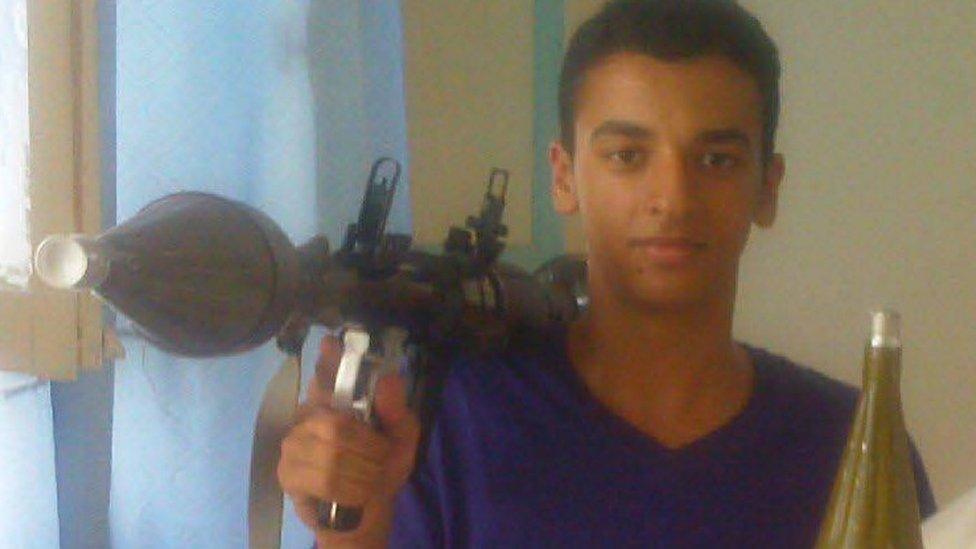
- Published22 November 2021
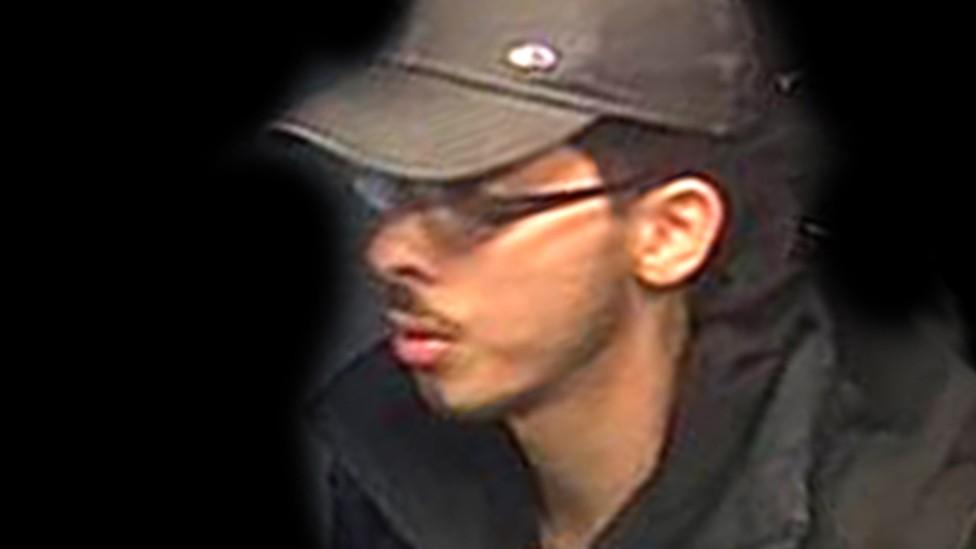
- Published28 October 2021

- Published27 October 2021
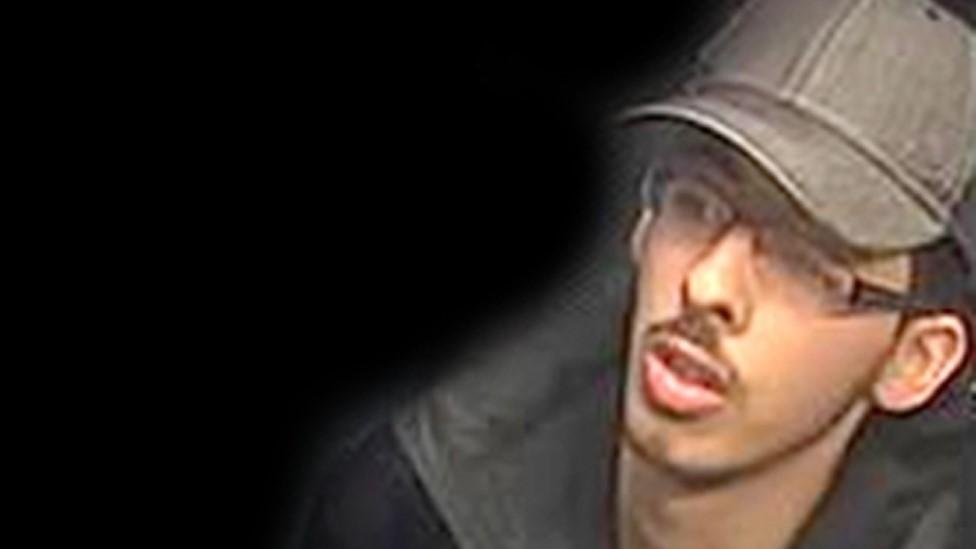
- Published26 October 2021
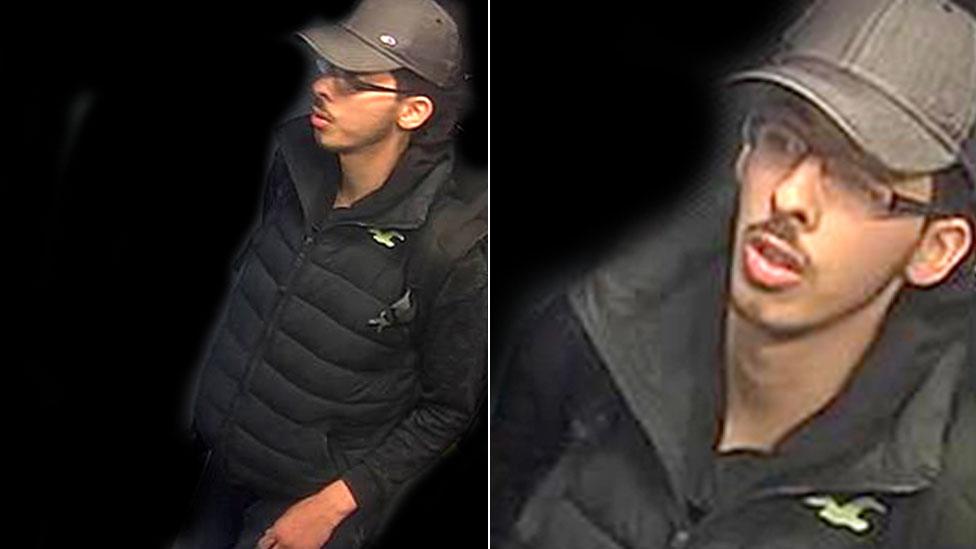
- Published26 October 2021
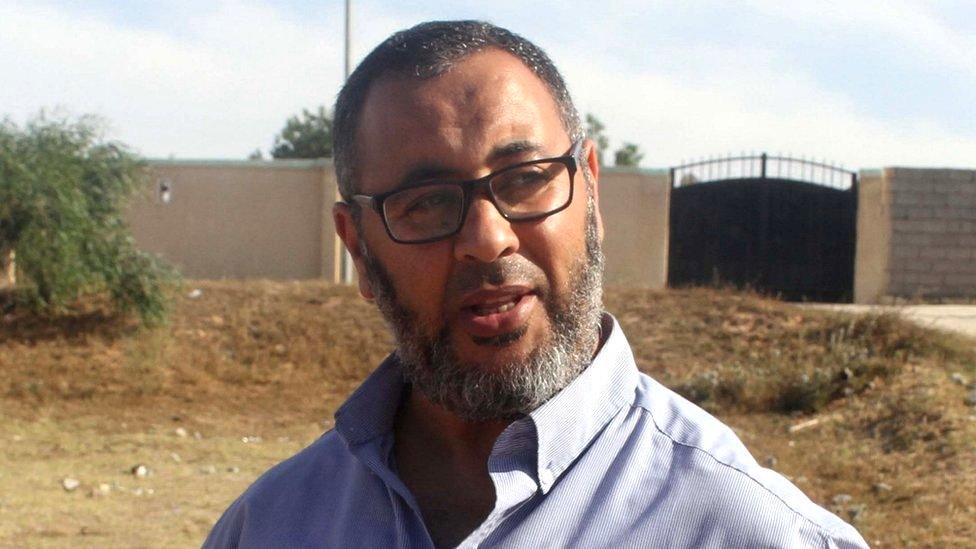
- Published21 October 2021
